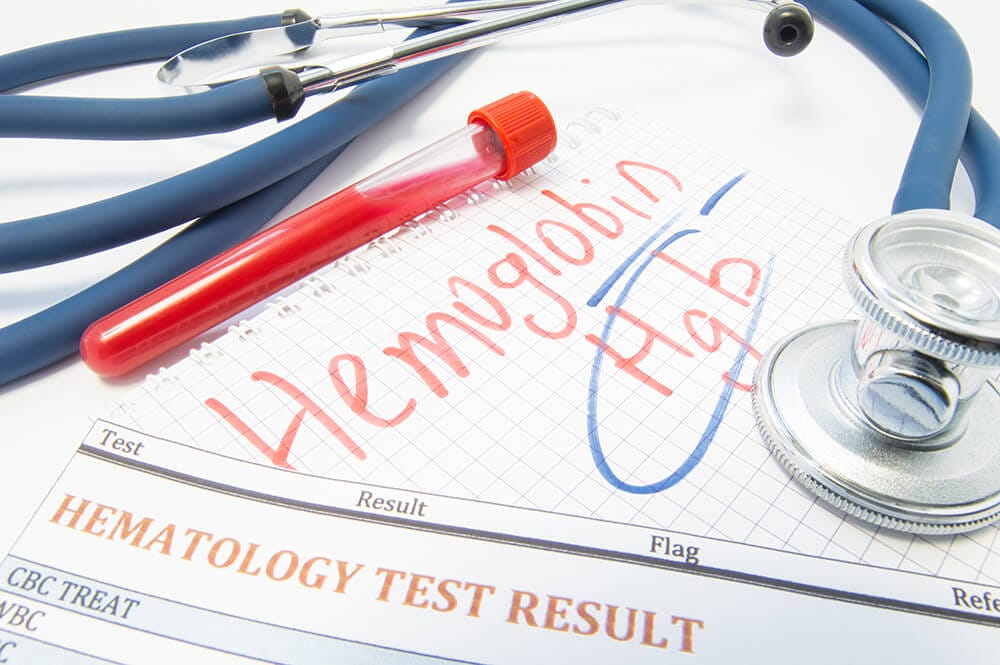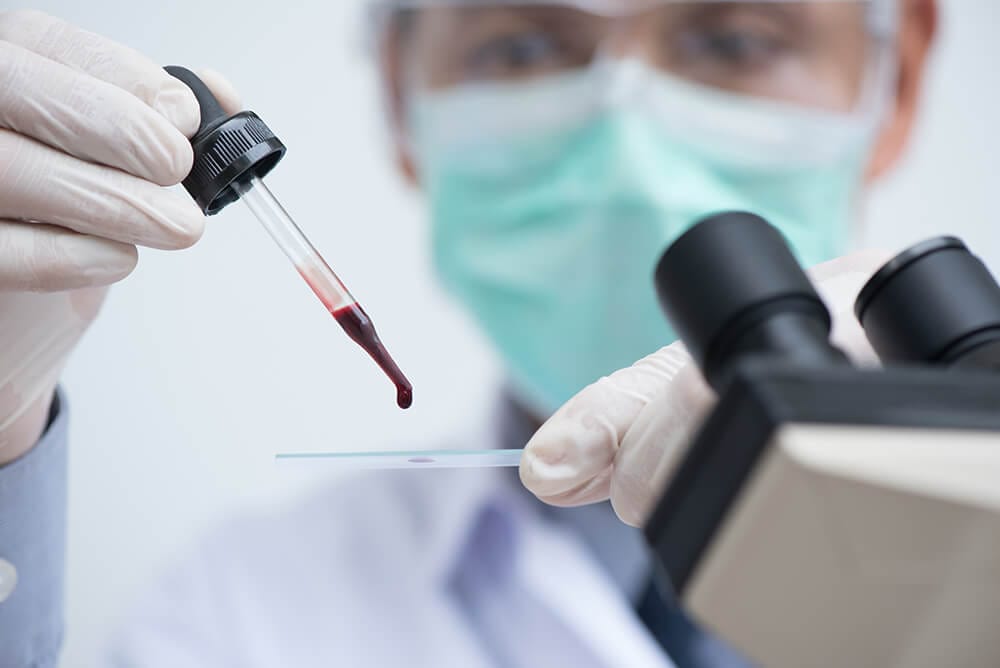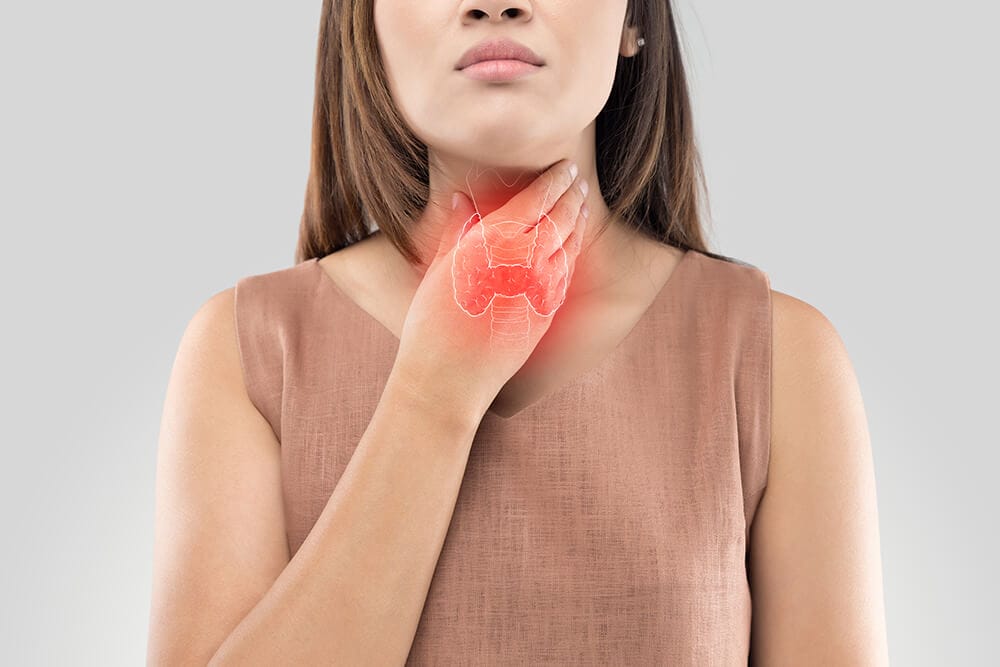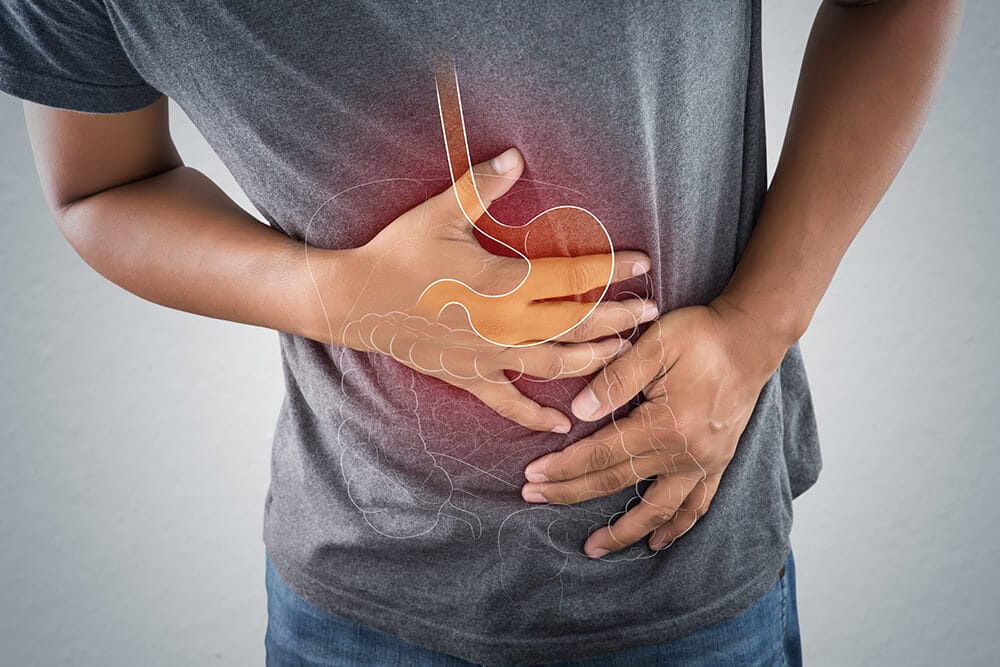
How To Increase Hemoglobin Levels: Foods, Supplements & More
Overview on hemoglobin
Hemoglobin is an iron-rich molecule present in the red blood cells that is responsible for carrying oxygen from lungs to different organs and tissues of the body. The carbon dioxide from various parts of the body is carried back to the lungs with the help of hemoglobin. Not only that, the amount of hemoglobin in cells determines the colour of the blood and the shape of red blood cells. Less amount of hemoglobin in the blood can cause severe health conditions including anemia. Hemoglobin levels in the blood are measured through a complete blood count (CBC) test. The average hemoglobin levels should be 14 to 18 gm per deciliter (100 millimeter) of blood in adult men and 12 to 16 gm/dL in adult women. In case you want to find out how to increase hemoglobin levels in body, read the article!
Causes of low hemoglobin count
A low hemoglobin count results in anemia. The following are some of the most significant causes of low hemoglobin.
-
- Blood loss:- Excessive blood loss during pregnancy, a surgery, or an accident can reduce red blood cells in the body and decrease hemoglobin.
- Reduced production of red blood cells in the body:- Certain diseases and autoimmune disorders like thalassemia, sickle cell anemia, and enlarged spleen destroys blood cells faster than they are produced. It decreases hemoglobin levels in the blood.
- Intestinal disorders:– At times, intestinal disorders can cause bleeding in the digestive tract that leads to hemorrhage. It can also be a cause of low hemoglobin levels.
- Leukemia:- Cancer or other bone marrow diseases can also decrease hemoglobin.
- Aplastic anemia:- This disease does slow down the production of new blood cells. Aplastic anemia can be caused due to exposure to toxic chemicals, autoimmune disorders or chemotherapy. Since production of blood cells decreases, the hemoglobin level in blood also goes down.
Symptoms of low hemoglobin count
Low levels of hemoglobin count are diagnosed through a blood test. However, the following symptoms might indicate a low hemoglobin count in the blood:
-
- Dizziness
- Muscle weakness
- Headache
- Breathlessness
- Pale skin
- Irregular heartbeat
- Lightheadedness
- Chest pain
- Fatigue cold
Problems arising due to low hemoglobin count
Hemoglobin also contains iron that is essential for the body. Low levels of hemoglobin can cause severe health complications:
-
- Inflammation:- Low levels of hemoglobin in the body does not allow enough oxygen to reach the tissues and can cause inflammation.
- Headache:- Less amount of hemoglobin in the body can also cause severe headaches or migraine.
- Prone to infections:- Low levels of hemoglobin in the blood decrease immunity. This makes the body more prone to various infections, allergies and diseases.
How to increase hemoglobin levels – Foods to consume
If you are wondering how to increase hemoglobin levels in the bed, the best way to have a nutritious diet. You should have foods rich in iron and folate to increase hemoglobin levels in the body. Here are some of the most popular hemoglobin foods.
-
- Citrus Fruits: Oranges, strawberries, kiwi, and lemon and other vitamin C rich foods are the best foods for hemoglobin. Citrus fruits allow better absorption of iron into the blood. You can also add other vitamin C foods in your diet like tomatoes, bell pepper, and potatoes to increase iron in the body. Even pomegranate is beneficial for increasing hemoglobin.
- Raisins and dates:- Both raisins and dates are a rich source of iron and increase the amount of hemoglobin in the blood. You can soak some raisins and dates in water overnight and have it in the morning to increase hemoglobin production.
- Meat, fish and eggs:- These foods are such in heme iron that is easily absorbed by our body and increases hemoglobin production. You can have beef, lamb, chicken, turkey, and pork. In fish, you can have salmon, tuna and clamps for increasing hemoglobin. Even sea foods like oysters, shrimp, and sardines are beneficial.
- Millets:- Studies have suggested that millets are an excellent food for hemoglobin over regular rice or wheat. It increases hemoglobin levels in the blood through better iron absorption.
- Beetroot:- Beetroot contain various nutrients like iron, folate, potassium and fibre. It increases the amount of rs blood cells in the body and therefore induces hemoglobin levels. You can have one cup of sliced or grated beetroot daily for hemoglobin.
- Green vegetables:- One of the best hemoglobin foods are green vegetables like spinach, green beans, broccoli, peas and kale. These foods also contain folate that increases iron absorption in the body and boosts the production of hemoglobin.
- Healthy fats:- Foods containing healthy fats like peanuts, pumpkin seeds, legumes, whole-grain foods also have good amounts of iron and folate that increase hemoglobin levels in the blood.
How to increase hemoglobin levels – Supplements
If you have a low amount of hemoglobin in the body even after having an iron and folate-rich diet, then you can consider having iron or folate supplements. However, it is better to consult a doctor and get your hemoglobin checked through a blood test. The doctor will give you iron or other health supplements if required. You can also have fortified cereals, tofu or soy milk to increase hemoglobin levels.
Food and supplements to avoid to maintain hemoglobin level
If you have anemia, you must avoid foods rich in calcium, tannins, and phytates. Here is a list of foods that you should avoid if you have low hemoglobin.
-
- High-calcium foods:- Excess calcium in the body decreases iron absorption in the body that can reduce hemoglobin levels in the body. Lowering calcium intake for some time is shown to increase iron levels in the body. Therefore, you can reduce milk, cheese, yogurt, tofu, and soymilk intake. Avoid having fortified foods containing calcium.
- Coffee and tea:- Caffeine contains tannins that reduce iron absorption in the blood. Even excessive green tea can decrease iron levels in the body and cause anemia.
- Gluten:- You should also avoid gluten-rich foods like pasta, wheat bread, crackers, cereals and beer if your hemoglobin is low.
When to consult a doctor?
If you experience symptoms like fatigue, weakness or dizziness occasionally, you might not necessarily need to see a doctor. However, if you are unable to perform daily activities due to excess fatigue, loss of breath, or weakness, you must consult a doctor immediately.
Diagnosis and treatment of low hemoglobin count
The doctor will ask you about various symptoms to confirm if you have low hemoglobin levels and anemia. The diagnosis can be confirmed through a complete blood test. A urine test might also be required. If you have low hemoglobin, the doctor might prescribe iron or folate supplements to increase hemoglobin. You might also be asked to follow an iron-rich diet. If hemoglobin level is low due to blood loss or any other health condition, you might require a blood transfusion, or iron infusion in the body through IV.
Conclusion
Low levels of hemoglobin in the body can be fatal because hemoglobin is responsible for carrying oxygen to and carbon dioxide from the tissues. It is essential for proper functioning of all organs of the body and impacts the production and shape of red blood cells. Less hemoglobin levels in the body can cause anemia. In severe cases, it can also lead to heart attack, cancer and chronic diseases. Therefore, it is better to get a blood test done in Delhi if you feel low hemoglobin symptoms.
FAQ
How to increase hemoglobin in a week?
The best way to increase hemoglobin in a week is to have iron and folate rich foods. You can soak raisins overnight in water and have it next morning on an empty stomach to increase the amount of iron in your blood.
What vegetarian foods are best to increase hemoglobin?
If you are a vegetarian, you can eat vitamin C rich foods like orange, kiwi, and berries. Green vegetables like spinach, broccoli, peas, and green beans are rich in iron and folate that help increase hemoglobin levels.
What happens if hemoglobin is too low?
Dangerously low levels of hemoglobin in blood can be fatal as majority body parts will not receive oxygen. It can cause organ failure, chronic kidney diseases, increases the risk of heart attack and cancer and weakens immunity.














